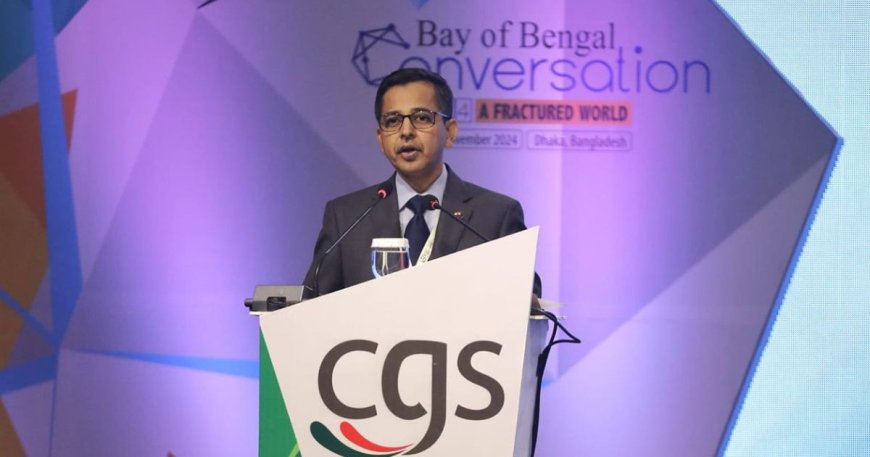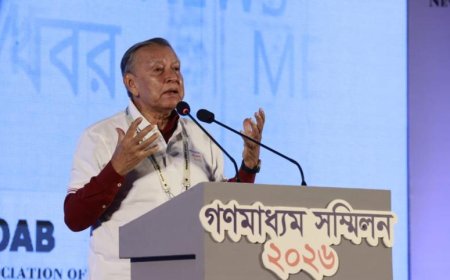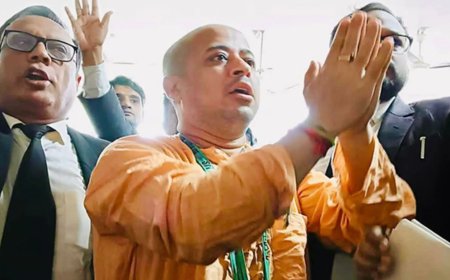India-Bangladesh relations have remained strong despite political transitions and cannot be confined to a 'single issue,' states the Indian envoy
The remarks follow Yunus's statement about requesting India to "send back" Sheikh Hasina, while sources indicate that the Foreign Secretaries of both nations may hold a meeting soon.

India and Bangladesh have sustained strong ties despite “turbulent changes” and shifts in the “political wind,” noted India’s High Commissioner to Dhaka, Pranay Verma. He referenced the ousting of former Prime Minister Sheikh Hasina on August 5 and the subsequent unrest. His remarks coincided with an address by Bangladesh’s interim government Chief Adviser Muhammad Yunus, who marked 100 days in office by stating his intention to ask India to “send back” Ms. Hasina, currently residing in India—a demand that could strain bilateral relations in the future.
In his first major public address since the Yunus-led government took office, Mr. Verma emphasized the multifaceted nature of India-Bangladesh relations. Highlighting bilateral initiatives such as the newly inaugurated power supply line from Nepal to Bangladesh via India and sustained trade connectivity, he stated that ties cannot be reduced “to a single issue.” Speaking at the Bay of Bengal Conference, he said, “The fact that our trade and economic ties, transport and energy connectivity, and people-to-people engagements have continued despite turbulent changes in Bangladesh demonstrates the depth of our relationship.”
‘Zero-Tolerance on Terrorism’
Mr. Verma acknowledged Bangladesh’s efforts to shut down terror camps in 2009 and its commitment to curbing anti-India activities, noting that this “zero-tolerance on terrorism” has been crucial for bilateral cooperation and regional stability. “A strong and prosperous Bangladesh is vital for India, just as India is vital for Bangladesh,” he added.
The envoy’s remarks are significant amid strained ties following Ms. Hasina’s move to India and rising concerns over attacks on minorities, including Bangladesh’s Hindu community. Last week, India urged the Yunus government to ensure stronger protection for minorities after several incidents of violence in Chittagong.
Bilateral Dialogue and Future Plans
Indian Prime Minister Narendra Modi raised these concerns during a call with Mr. Yunus in August. While the two leaders have not met in person, sources suggest a potential visit to Dhaka by Indian Foreign Secretary Vikram Misri in the near future. A meeting between the two leaders may occur at the BIMSTEC summit in 2025, given scheduling challenges thus far.
Extradition Issue Looms
In a televised address, Mr. Yunus reaffirmed his government’s commitment to pursuing Ms. Hasina’s extradition to face trial for alleged human rights violations during her tenure, including the deaths of 1,500 civilians during a police crackdown. He said the matter had also been discussed with the International Criminal Court.
India has maintained that Ms. Hasina sought refuge on “short notice” due to the security situation in Bangladesh. To date, Bangladesh has not formally requested her extradition.
Despite these challenges, Mr. Verma underscored that bilateral relations remain resilient. “There are irritants, but they have not restricted the overall forward movement in our relations,” he said, emphasizing the interdependence and mutual benefits that define India-Bangladesh ties.
What's Your Reaction?





















































































